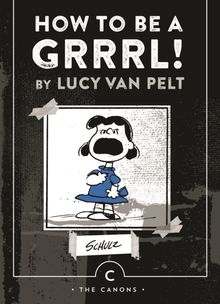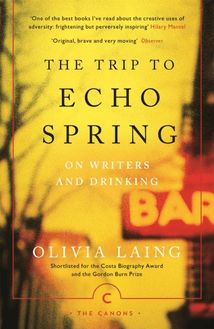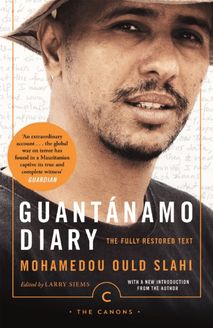Hunger , livre ebook
114
pages
English
Ebooks
1999
Vous pourrez modifier la taille du texte de cet ouvrage
Obtenez un accès à la bibliothèque pour le consulter en ligne En savoir plus
Découvre YouScribe en t'inscrivant gratuitement
Découvre YouScribe en t'inscrivant gratuitement
114
pages
English
Ebooks
1999
Vous pourrez modifier la taille du texte de cet ouvrage
Obtenez un accès à la bibliothèque pour le consulter en ligne En savoir plus
Publié par
Date de parution
02 novembre 1999
Nombre de lectures
2
EAN13
9781847673640
Langue
English
Publié par
Date de parution
02 novembre 1999
Nombre de lectures
2
EAN13
9781847673640
Langue
English
HUNGER
Knut Hamsun
Translated by Sverre Lyngstad
Contents
Introduction by Jo Nesbø
Hunger
Translator’s Trap: Knut Hamsun’s Hunger in English
Appendix
Afterword by Paul Aster
INTRODUCTION
by Jo Nesbø
‘With Hunger , Knut Hamsun created more than a novel.’
This was the opening I had in mind when I said I would write this introduction. It came to me automatically, an obvious overture. Then I started to doubt myself. Although it was true, wasn’t it also a little cliché? In Hunger, Knut Hamsun created a Norwegian language that is dynamite and velvet simultaneously, a Scandinavian version of the psychological novel, a character-driven drama that makes the reader laugh while it tears his heart apart. But does all this need to be repeated by someone who doesn’t even have a degree in literature? Armed with this doubt, I went to my bookshelf in search of my copy of Hunger . I couldn’t find it, but I knew it had to be somewhere. It wasn’t lost, and I definitely hadn’t lent it to someone; some books you simply don’t part with, however solemnly people promise to return them. Not because you’re going to reread them, but because you need to have them – the physical book is a memento, a milestone in your life, a baptismal keepsake, the medal you were awarded when you swam your first twenty-five yards, the diary that logged your days’ trivial incidents, journeys and football results, your first love letter, the first song you wrote and taped with a buddy. Things you just don’t want to lose sight of.
Then I found it.
A cheap pocket edition, of course. With pages so dry and brittle that I hardly dared to open the book for fear that they would loosen from the binding. But nevertheless, there it was, the most famous and most quoted opening sentence in the history of Norwegian literature: ‘It was in those days when I wandered about hungry in Kristiania, that strange city which no one leaves before it has set its mark upon him . . .’
I can see myself lying stretched out, reading this old, peculiar Norwegian prose and feeling that it was my own language, my very own author. Perhaps because Hamsun – the Nobel Prize notwithstanding – was scarcely required reading at school, by coincidence, or – more likely – due to his Nazi-friendly attitude during the war. No admittance. Out. The genius we don’t acknowledge. Ideal for a sixteen-year-old who worships outsiders, who digs rather than reads the dope-smoking Hunter S. Thompson, the overtly homosexual Jean Genet, the paedophilic prose of Vladimir Nabokov. Or, for that matter, Elvis and the Sex Pistols; trash that belonged only to those who were willing to listen.
Then I realised what I wanted to say in this introduction. That this book is the soundtrack of my life. The soundtrack of my youth, of the time when we – sixteen, seventeen years old – gathered at the café in our small town, dressed in long woollen coats that we’d bought at the Salvation Army, and sucked in our cheeks to look hungrier and leaner; angry young men, we were self-styled bohemians, since we’d skipped math class to sit there and discuss literature with the air of connoisseurs and with long pauses that we hoped would be interpreted as sub-text and not as a lack of actual insight into what we claimed to have read of Hamsun, Dostoyevsky, Kafka. We drank the café’s acidic percolator coffee instead of absinth, but weren’t our crushes just as desperate and heartbreaking? Weren’t we just as close to suicide? Wasn’t there just as much lifeblood in our attempts to write poetry, or the new great European novel? We were teenagers with asserted writer’s block, longing and weltschmerz ; we imitated our idols, wrote in Old Norwegian and thought we could get away with it. But the universal applied to us too; our writing was a reaction to our reading, the same social reflex as when storytelling moves like a relay baton between friends around a café table: one person’s good – or at least moderately good – story inspires the next person to outshine it. And that’s what we did. We sat there, peacocks dressed in oversized coats, and planned to outshine Knut Hamsun.
And now, sitting here with my old, dried-out book, I suddenly know what I meant by that empty phrase about Knut Hamsun creating more than a novel with Hunger . He created authors.
Oslo, 23 March 2011
Part One
It was in those days when I wandered about hungry in Kristiania, that strange city which no one leaves before it has set its mark upon him… .
Lying awake in my attic room, I hear a clock strike six downstairs. It was fairly light already and people were beginning to walk up and down the stairs. Over by the door, where my room was papered with old issues of Morgenbladet , I could see, very clearly, a notice from the Director of Lighthouses, and just left of it a fat, swelling ad for freshly baked bread by Fabian Olsen, Baker.
As soon as I opened my eyes I started wondering, by force of habit, whether I had anything to look forward to today. I had been somewhat hard up lately; my belongings had been taken to ‘Uncle’ one after the other, I had grown nervous and irritable, and a couple of times I had even stayed in bed for a day or so because of dizziness. Every now and then, when I was lucky, I managed to get five kroner for an article from some newspaper or other.
As it grew lighter and lighter I started reading the ads over by the door; I could even make out the thin, grinning letters concerning ‘Shrouds at Madam Andersen’s, main entrance to the right’. This occupied me for quite a while – I heard the clock strike eight downstairs before I rose and got dressed.
I opened the window and looked out. From where I stood I had a view of a clothesline and an open field; in the distance was a forge, left over from a burned-down blacksmith’s shop where some workers were busy cleaning up. I leaned forward with my elbows on the windowsill and gazed at the sky. It promised to be a clear day. Autumn had arrived, that lovely, cool time of year when everything changes colour and dies. The streets had already begun to get noisy, tempting me to go out. This empty room, where the floor rocked up and down at every step I took, was like a horrible, broken-down coffin. There was no proper lock on the door and no stove in the room; I used to sleep in my socks at night so they would dry a little before morning. The only thing I had to amuse myself with was a small red rocking chair where I used to sit in the evening, dozing and musing on all manner of things. When the wind blew hard and the doors downstairs were open, all sorts of eerie, whistling sounds floated up through the floor and out from the walls, and the Morgenbladet over by the door would get tears in it the length of my hand.
I stood up and searched through a bundle over in the corner by the bed for a bit of breakfast, but found nothing and went back again to the window.
God knows, I thought, if there is any point to my looking for work any more! All those refusals, those half promises and flat ‘No’s, hopes cherished only to be dashed, fresh attempts that always came to nothing – all this had killed my courage. Finally I had applied for a job as a bill collector but been too late; besides I couldn’t post a fifty-kroner bond. There was always something or other in the way. I also signed up for the fire brigade. There we stood, a half-hundred of us, in the entrance hall, throwing our chests out to give an impression of strength and fearlessness. A deputy chief went around inspecting these applicants, feeling their arm muscles and asking a question or two, and me he passed over, merely shaking his head and saying I was unfit because of my glasses. I showed up again, without glasses, standing there with knitted brows and making my eyes sharp as razors, but again the man passed over me, and he smiled – he must have recognised me. The worst of it was, my clothes were getting to be so shabby that I could no longer present myself for a position like a respectable person.
It had been going steadily downhill for me all along, and how! In the end, strange to say, I was stripped of everything under the sun, I didn’t even have a comb any more or a book to read when life became too dreary. All summer long I had haunted the cemeteries and Palace Park, where I would sit and prepare articles for the newspapers, column after column about all sorts of things – strange whimsies, moods, caprices of my restless brain. In my desperation I had often chosen the most far-fetched subjects, which cost me hours and hours of effort and were never accepted. When a piece was finished I began a fresh one, and I wasn’t very often discouraged by the editor’s no; I kept telling myself that, some day, I was bound to succeed. And indeed, when I was lucky and it turned out well, I would occasionally get five kroner for an afternoon’s work.
Getting up from the window again, I stepped over to the wash-stand and sprinkled a bit of water on the shiny knees of my trousers, to darken them and make them look newer. This done, I put paper and pencil in my pocket, as usual, and went out. I stole quietly down the stairs to avoid attracting the attention of my landlady; my rent had been due a few days ago and I had nothing to pay her with any more.
It was nine o’clock. The air was filled with voices and the rumble of carriages, an immense morning chorus that mingled with the footsteps of the pedestrians and the cracks of the coachmen’s whips. This noisy traffic everywhere put me in a brighter mood immediately, and I started feeling more and more contented. Nothing was further from my mind than just taking a morning walk in the fresh air. What did my lungs care about fresh air? I was strong as a giant and could stop a coach with my bare shoulders. A strange, delicate mood, a feeling of cheerful nonchalance, had taken possession of me. I began to observe the people I met or passed, read the posters on the walls, caught a glance cast my way from a p













